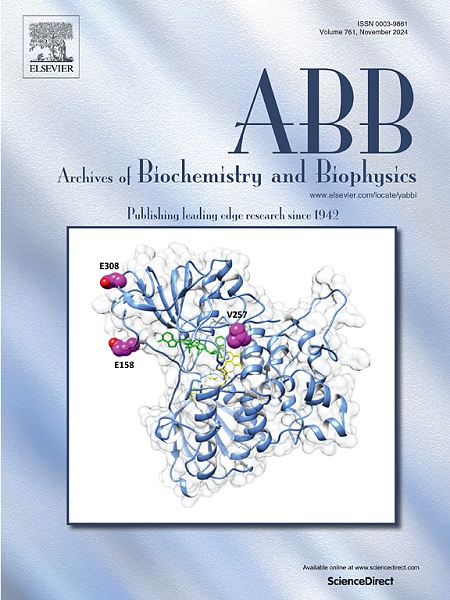Blueberry-derived exosome like nanovesicles carry RNA cargo into HIEC-6 cells and down-regulate LPS-induced inflammatory gene expression: A proof-of-concept study
IF 3.8
3区 生物学
Q2 BIOCHEMISTRY & MOLECULAR BIOLOGY
引用次数: 0
Abstract
Exosome-like nanovesicles (ELNs) of food origin have received great attention in the last decade, due to the hypothesis that they contain bioactive molecules. ELNs purified from edible species have been shown to be protective and are able to regulate intestinal homeostasis. Despite ELNs being potential rising stars in modern healthy diets and biomedical applications, further research is needed to address underlying knowledge gaps, especially related to the specific molecular mechanism through which they exert their action. Here, we investigate the cellular uptake of blueberry-derived ELNs (B-ELNs) using a human stabilized intestinal cell line (HIEC-6) and assess the ability of B-ELNs to modulate the expression of inflammatory genes in response to lipopolysaccharide (LPS). Our findings show that B-ELNs are internalized by HIEC-6 cells and transport labeled RNA cargo into them. Pretreatment with B-ELNs reduces LPS-induced ROS generation and cell viability loss, while modulating the expression of 28 inflammatory genes compared to control. Pathway analysis demonstrates their ability to suppress inflammatory responses triggered by LPS. In conclusion, our data indicate that B-ELNs are up taken by HIEC-6 cells and can modulate inflammatory responses after LPS stimulation, suggesting a therapeutic potential. This study demonstrates the role of B-ELNs in regulating crucial biological processes, like anti-inflammatory responses, which could support intestinal health.

蓝莓外泌体纳米颗粒携带 RNA 货物进入 HIEC-6 细胞并下调 LPS 诱导的炎症基因表达:概念验证研究。
过去十年中,源自食物的类外泌体纳米微粒(ELNs)受到了极大的关注,因为人们假设它们含有生物活性分子。从可食用物种中纯化的 ELNs 已被证明具有保护作用,并能调节肠道平衡。尽管ELNs是现代健康饮食和生物医学应用中潜在的后起之秀,但仍需要进一步的研究来填补潜在的知识空白,尤其是与ELNs发挥作用的特定分子机制有关的知识。在这里,我们利用人体稳定肠细胞系(HIEC-6)研究了蓝莓提取物ELNs(B-ELNs)的细胞吸收情况,并评估了B-ELNs在脂多糖(LPS)作用下调节炎症基因表达的能力。我们的研究结果表明,B-ELNs能被HIEC-6细胞内化,并将标记的RNA货物运输到细胞内。与对照组相比,B-ELNs预处理可减少LPS诱导的ROS生成和细胞活力损失,同时调节28个炎症基因的表达。通路分析表明,B-ELNs 能够抑制 LPS 引发的炎症反应。总之,我们的数据表明,B-ELNs 能被 HIEC-6 细胞吸收,并能调节 LPS 刺激后的炎症反应,这表明它具有治疗潜力。这项研究证明了 B-ELNs 在调节关键生物过程(如抗炎反应)中的作用,这有助于肠道健康。
本文章由计算机程序翻译,如有差异,请以英文原文为准。
求助全文
约1分钟内获得全文
求助全文
来源期刊

Archives of biochemistry and biophysics
生物-生化与分子生物学
CiteScore
7.40
自引率
0.00%
发文量
245
审稿时长
26 days
期刊介绍:
Archives of Biochemistry and Biophysics publishes quality original articles and reviews in the developing areas of biochemistry and biophysics.
Research Areas Include:
• Enzyme and protein structure, function, regulation. Folding, turnover, and post-translational processing
• Biological oxidations, free radical reactions, redox signaling, oxygenases, P450 reactions
• Signal transduction, receptors, membrane transport, intracellular signals. Cellular and integrated metabolism.
 求助内容:
求助内容: 应助结果提醒方式:
应助结果提醒方式:


